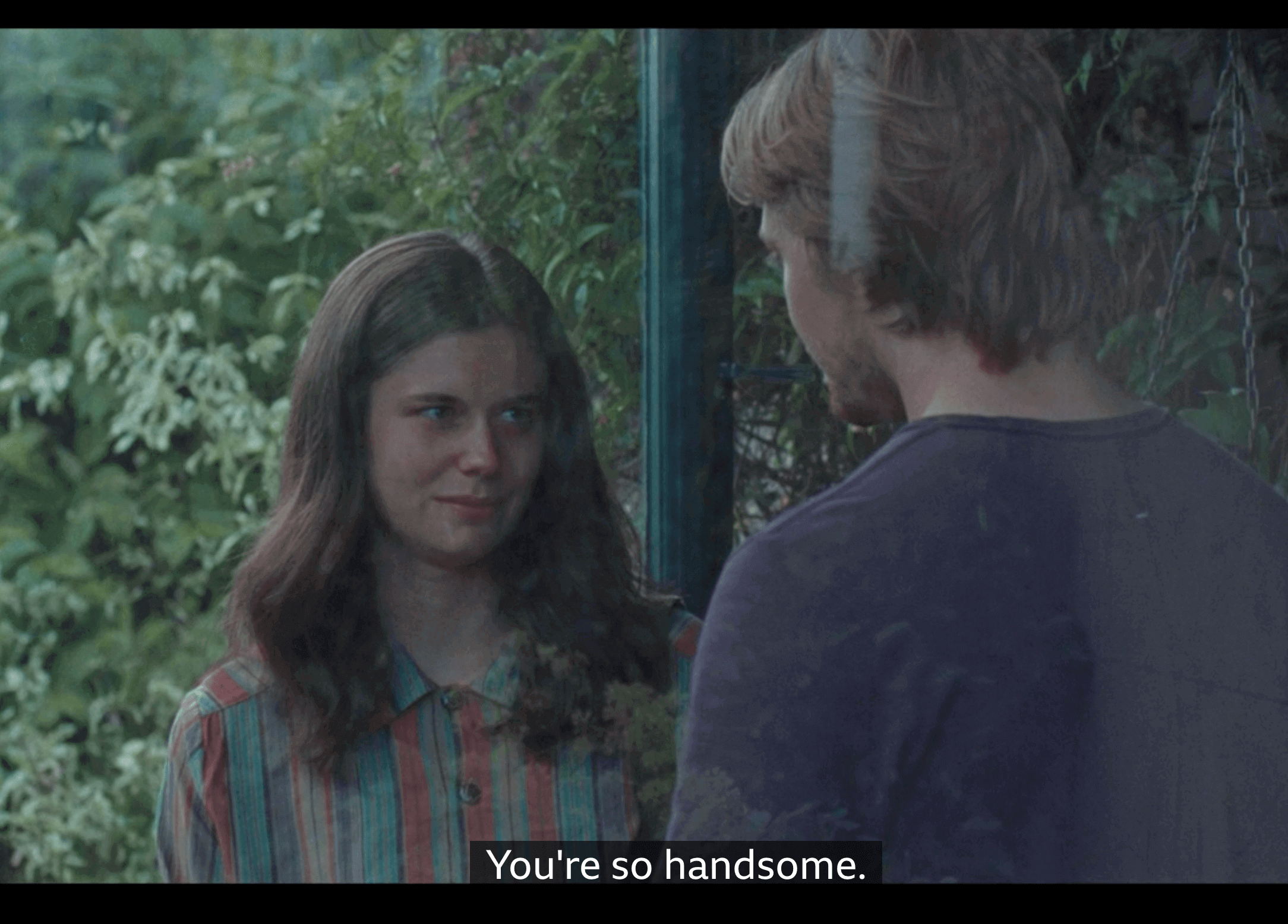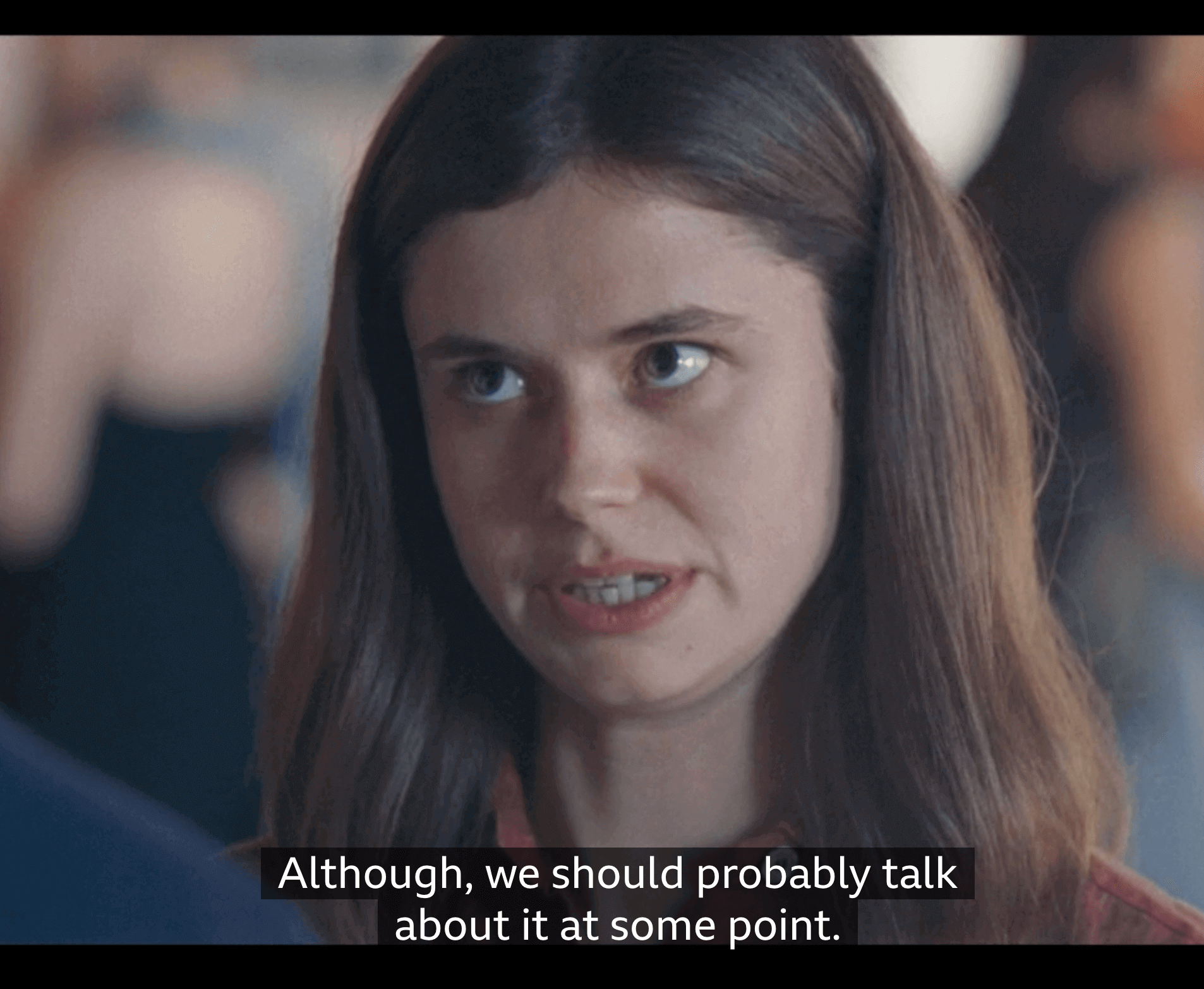Amid all the awkward, evasive and stilted exchanges between Nick (Joe Alywn) and Frances (Alison Oiver) in the recent TV adaptation of Conversations with Friends, this banter was like a life preserver thrown out to us. Imagine if they’d adopted this tone all the way through…
It’s not a criticism of the acting but I remember these characters being more interesting in the book. Ennui plays better on the page, as does awkwardness, and we ask less of the dialogue there. Their interiority is richer. Even the more languorous moments can be telling, in a subtle and nuanced manner, if we let our imagination engage.
Writing for the Evening Standard, Phoebe Luckhurst pinpoints what’s lost in adaptation: “Frances is a passive, malleable drip of a girl … at times so passive, such a spectator, she almost disappears off the screen — and Nick is a charisma vacuum. In the book, this is the point: fiction’s best characters are the introspective introverts, the watchful observers who dissect reality for us. But on screen, it means Frances and Nick are constantly outshone, upstaged — to the extent that scenes with just the pair of them can drag.”
The line that really spoke to me when I read Sally Rooney’s novel is this closing thought from the author as narrator: “You live through certain things before you understand them. You can’t always take the analytical position.” It cuts to the core of Frances and how she is so desperate to feel sure of herself, to assert herself as a writer, an adult, a woman.
Capitalism, class and power play into these concerns and the book does a better job of exploring them in the context of her relationship with Nick. How he loans Frances money when dad’s allowance stops. And when she asks Nick to hit her, almost as punishment, after a one-night stand with a guy on a dating app.
Frances has her struggles with mental health, low self-esteem, is quick to self-harm and is diagnosed with endometriosis. She’s going through a lot. But when it comes to Nick, it’s hard to sympathise too much with someone who wants someone else’s husband all to herself and uses her best friend to make him jealous. Here, Alison Oliver does a good job of wringing maximum solipsism out of Frances.
It took a while to empathise with Nick’s struggles, let alone care about them. Anyone can feel worthless or rudderless at some point in their lives, even handsome people. But this revelation felt more out of character than in the book. Lots of people think Alwyn portrayed him perfectly. Maybe he did and I’m asking too much of a depiction on screen. Both are men of few words, I’ll give them that.









